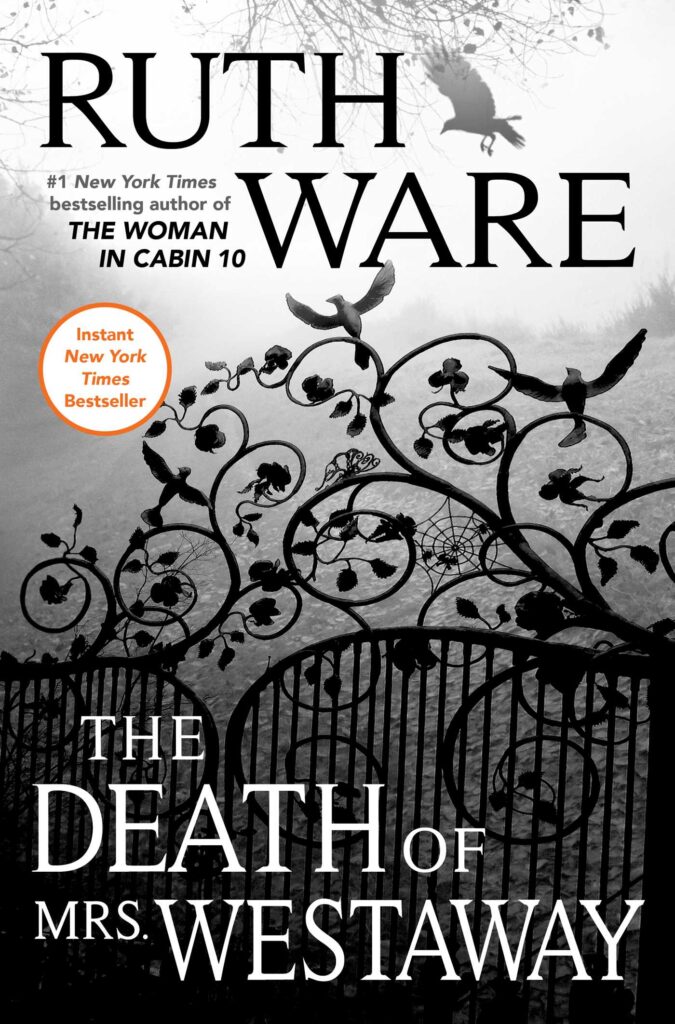
On a damp, chilly night, Harriet “Hal” Westaway finally makes it home to her dismal flat. At 21, she’s been scraping out a living doing tarot readings in a kiosk on Brighton Pier she inherited from her mother. In her mail, mixed in with the past-due notices are two letters: a threat from a loan shark demanding immediate payment and one from a lawyer in Cornwall.
The lawyer’s letter informs her of the death of her maternal grandmother and invites her, as a beneficiary, to a reading of the will. Hal knows her mother’s mother died years ago, so this must be a case of mistaken identity. She’s alone in the world, her mother killed in a hit-and-run three years earlier and her father dead when she was too young to remember him.
Still, the promise of a sizeable bequest and the increasing violence of the loan shark’s threats combine to overcome her scruples at deceiving this mourning family. After all, she reasons, they are obviously rich enough to spare a few thousand pounds. In crafting her tarot readings, she’s become superbly skilled at reading people, so she just might be able to pull it off.
She barely manages the one-way fare to Cornwall, where she’s met and taken in the pouring rain to Mrs. Westaway’s funeral at a church outside Penzance, where she meets her “uncles” and is taken back to Trepassen House, a gloomy mansion complete with hostile housekeeper who shows her to a tiny room set off from the rest of the house with a small iron bed and bars on the window.
There was a lock on the door. Two, in fact. They were long, thick bolts, top and bottom.
But they were on the outside.
I generally avoid thrillers—the world is producing a more than sufficient supply of anxiety these days, thank you very much—but I keep gravitating to Ware’s books anyway. This is the first one I’ve managed to read through, entranced by the echoes of Daphne Du Maurier’s Rebecca and the brilliant use of tarot cards.
Hal and her mother never believed in the cards; they were a means of making a living.
The cards tell you nothing you don’t already know. It was her mother’s voice, steady in her ear. They have no power, remember that. They can’t reveal any secrets or dictate the future. All they can do is show you what you already know.
Yet the author tantalises us with one card or another, turned up in a reading demanded by her new “relatives” or left conspicuously out, its meaning exerting power over the other characters and perhaps holding a clue to the mystery.
I’m also not a fan of the glut of woman-in-danger stories, but here the gothic atmosphere combined with the fascinating house and its grounds made for a captivating read. And Hal is an interesting heroine. I liked her integrity and how it is put to the test, not just once but over and over. At times I wished she were more strong-minded, but I could also see how the tragedies in her life could have left her afraid and uncertain.
As an author I was intrigued by the pacing and the reveals: when information is revealed, questions answered or new questions raised. Some things I did see coming, so I especially liked the times (no spoilers!) when I expected something to happen and was all set to condemn it as predictable—and it didn’t. Or it happened in a different way. Nice.
A contemporary gothic mystery with a mysterious mansion in Cornwall and plenty of family secrets to unearth: who could ask for anything more?
What mystery have you read that is set in Cornwall?